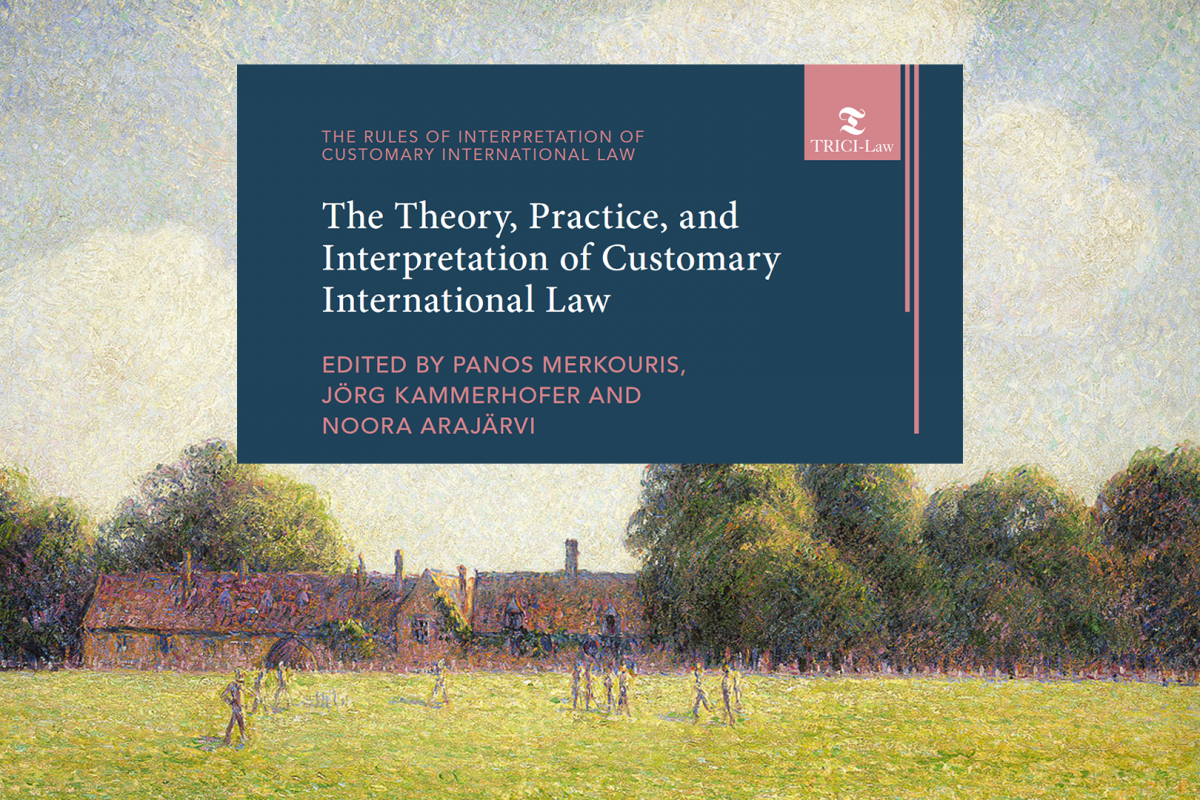Introducing the Book Review Symposium on “The Theory, Practice, and Interpretation of Customary International Law”
This summer, Judge Hilary Charlesworth made international lawyers very happy (some of them at least) when her dissenting opinion appended to the judgment of the International Court of Justice in the Question of the Delimitation of the Continental Shelf between Nicaragua and Colombia in the eleventh paragraph read:
“The methods of treaty interpretation are not fully transposable to the context of the interpretation of customary international law, and not all interpretative methods apply with equal force in the two processes. The interpreter must keep in mind that custom is neither generated, nor modified, nor extinguished in the same manner as a treaty.” (Emphases added.)
Readers who view Charlesworth’s opinion as commonsensical may be well ahead of the curve. For, when international lawyers say “interpretation”, what they usually mean is treaty interpretation. Or so Panos Merkouris has observed, the person leading the project on “The Rules of Interpretation of Customary International Law” (TRICI Law) and the co-editor of Jörg Kammerhofer and Noora Arajärvi of the Theory and Practice of the Interpretation of Customary International Law –– the work to which we dedicate this book review symposium.
Equating “interpretation” with “treaty interpretation” seems a peculiar professional predisposition. Merkouris encapsulated this, during an episode of Borderline Jurisprudence, in the neat Germanism Einstellungseffekt. One may wonder: Could this predisposition, this Einstellung, of international lawyers change? Turning to this question, and the great many others coming in its wake, should be of interest for a discipline that has witnessed “a turn to interpretation” (see Kemmerer). What this symposium helps to advance then is – as it were – “a turn” within the wider turn to interpretation: the turn to the interpretation of customary international law.
The Theory, Practice, and Interpretation of Customary International Law, published open access with Cambridge University Press last year, may have inaugurated this most recent of “turns”. But the volume surely does more than that. The editors provide a very first map of the numerous and multi-faceted issues arising in the context of the interpretation of customary international law. Their volume brings together contributions examining more traditional issues related to the theory of customary international law and such that go well beyond it.
This symposium can of course not do justice to all these variegated contributions. Over the course of this week, however, four distinguished commentators will review select contributions and key ideas contained in the volume:
Today, Monica Salmones Garcia engages with the contributions of the first Part of the book (“The Theory of CIL: Fault Lines and the Need for New Approaches on the Question of its Foundations”), introducing a self-styled concept of “Legal Appropriation”, or: Rechtsnahme, denoting “the ethos of global law” that supposedly accounts for “much of new positive law in the last century or so” and which has “transformed global order into a territory for conquest through norms.”
On Tuesday, Eirik Bjorge zooms in on the contributions specifically of Part IV (“Interpretation of CIL: Delineating the Stages”), emphasizing the very practical question that is the question of the interpretation of customary international law.
On Wednesday, Orfeas Chasapis Tassinis engages with contributions from different parts, commenting on ideas of Jörg Kammerhofer, Jean d’Aspremont, and Panos Merkouris and closing with some overarching reflections on the very interpretability of customary international law, “philosophically speaking.”
On Thursday, Outi Korhonen, praises the sophisticated ways in which the volume approaches the “Sherlockian quest” of demystifying customary international law, while criticizing its Eurocentric setup as well as the limited diversity among its contributors. She reminds readers of David Kennedy’s seminal work on the sources of international law, underlining the overall contextuality of the sources to be borne in mind when studying customary international law.
We conclude, on Friday, with the response by the editors.
With this brief preview, we wish all readers an inspiring read!

Jan-Henrik Hinselmann is a doctoral candidate at Georg-August-Universität Göttingen and an editor at Völkerrechtsblog.

Spyridoula Katsoni is Research Associate and PhD Candidate at Ruhr University Bochum’s Institute for International Law of Peace and Armed Conflict (IFHV).

Raphael Oidtmann is an Adjunct Lecturer at Mannheim Law School, an external PhD candidate at Goethe University Frankfurt, and an editor at Völkerrechtsblog.
